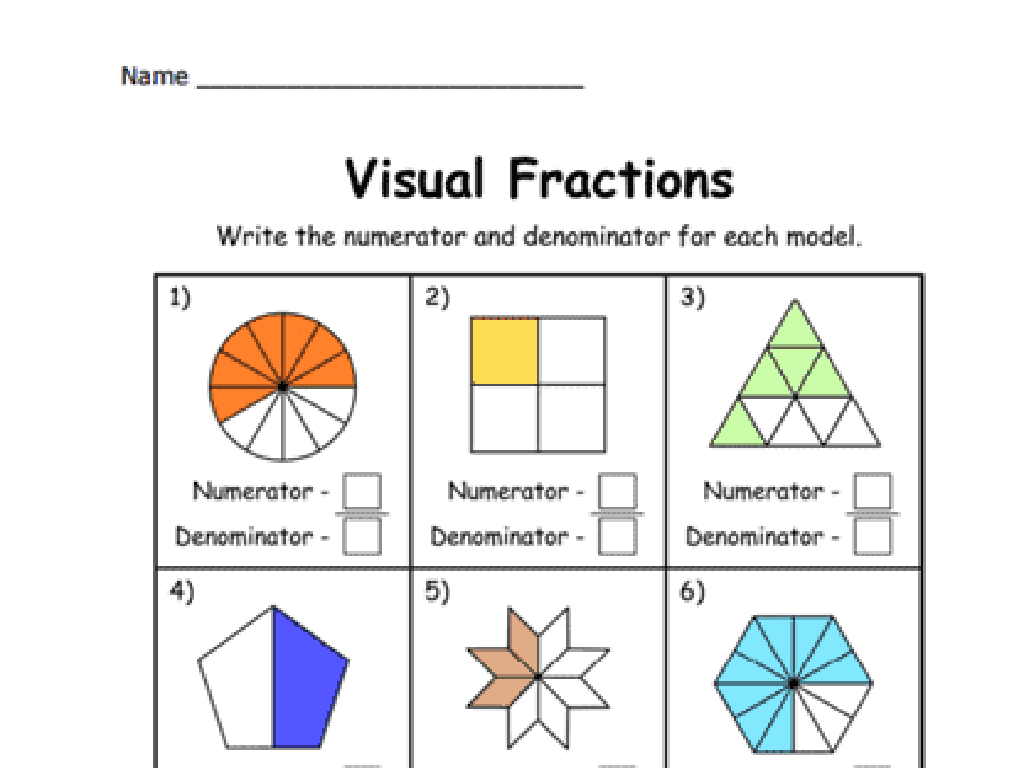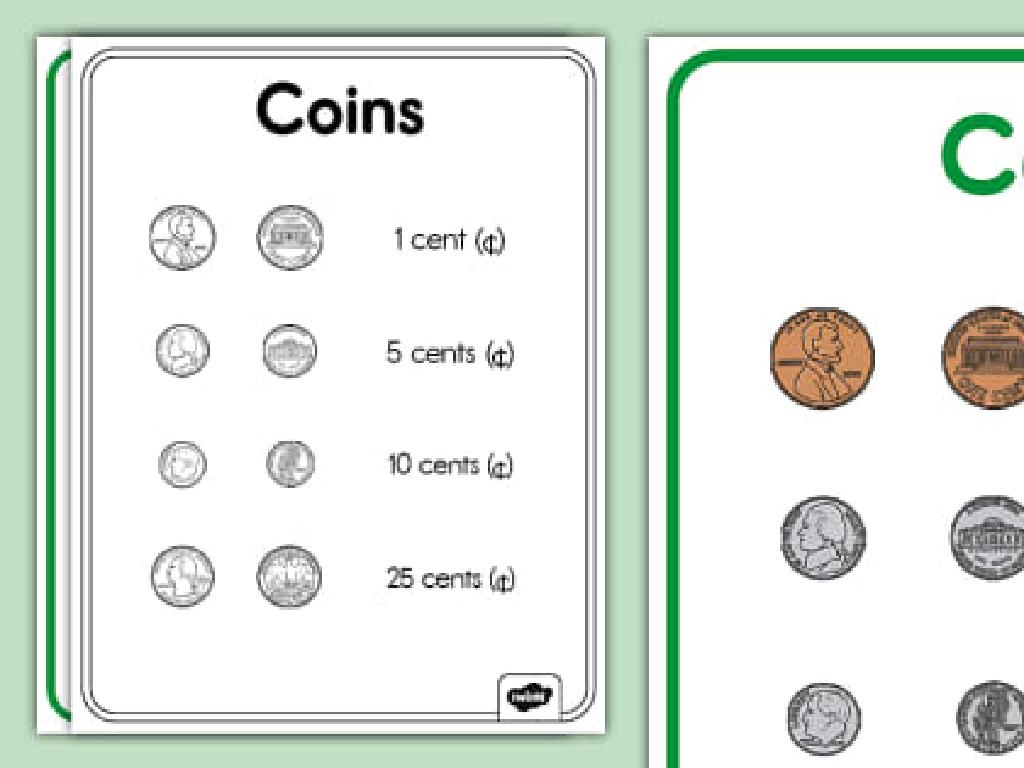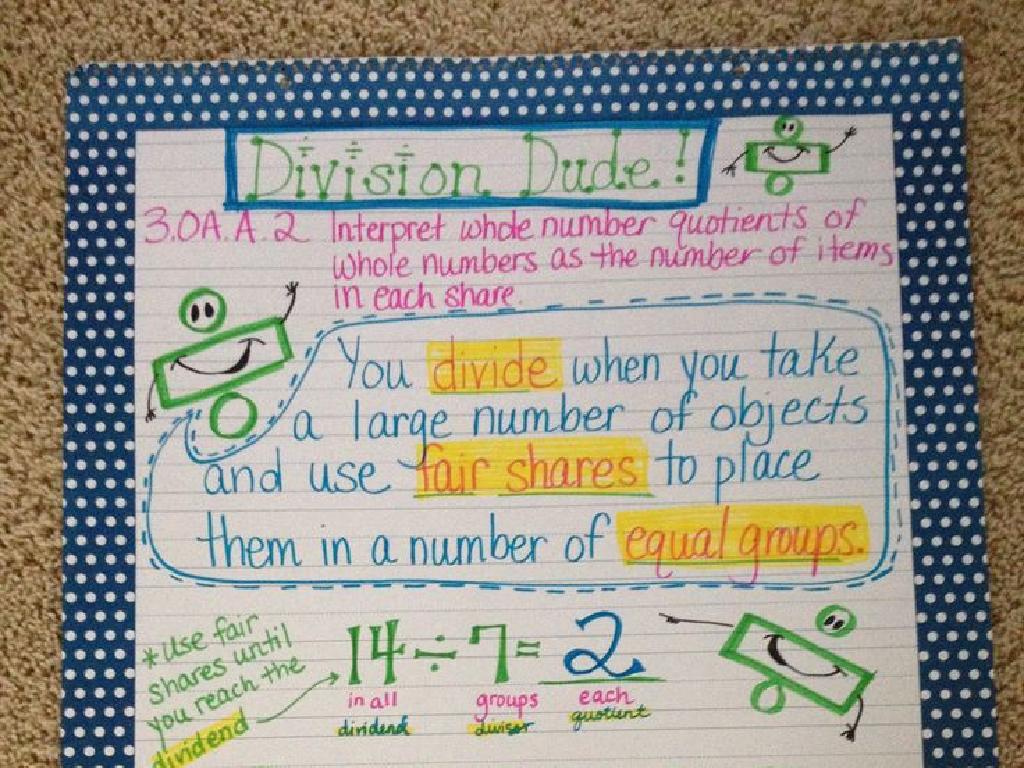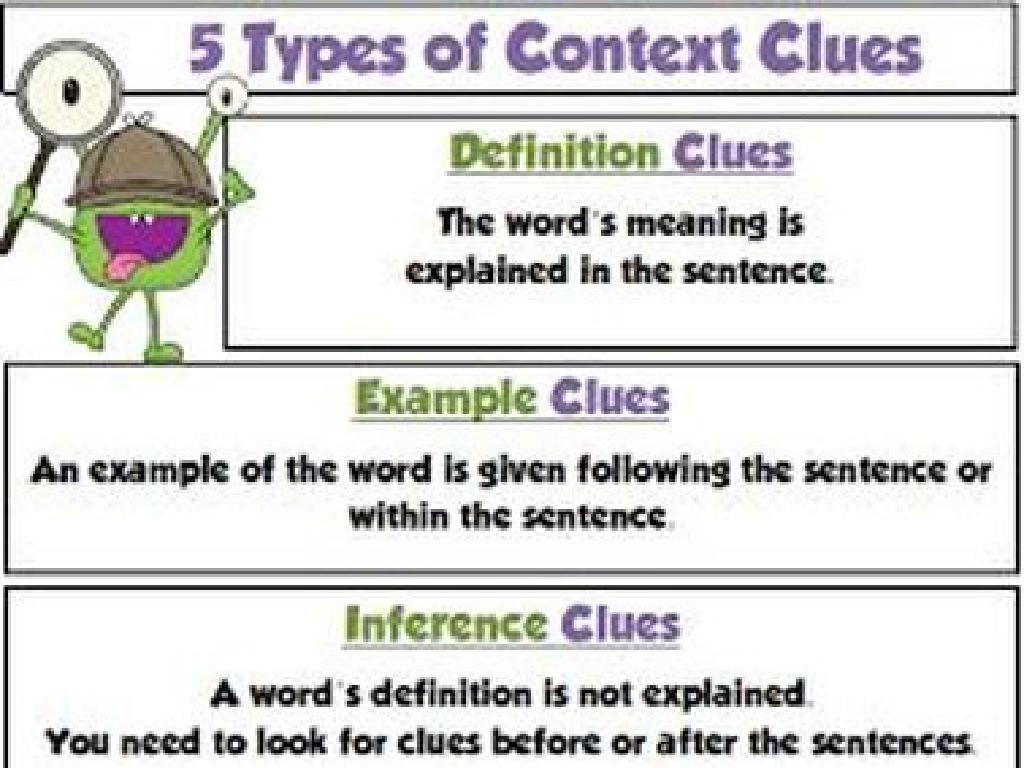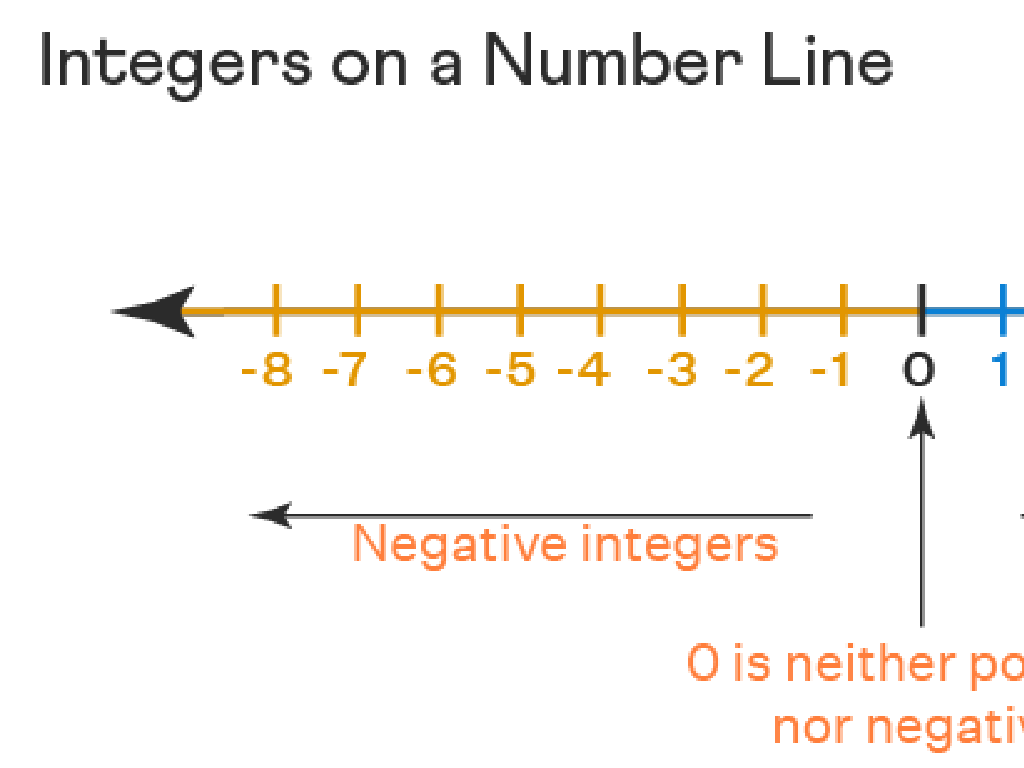Washington'S Presidency: Part I
Subject: Social studies
Grade: Seventh grade
Topic: The Early Republic
Please LOG IN to download the presentation. Access is available to registered users only.
View More Content
Introduction to the Early Republic
– Foundation of the United States
– The U.S. was founded on principles of freedom and democracy.
– Overview of the Early Republic
– A time of political innovation and the first steps of a new nation.
– Meet our first President
– George Washington, a key figure in the American Revolution, became the first President.
– Significance of Washington’s leadership
– His presidency set precedents for future leaders.
|
This slide introduces students to the formative years of the United States, known as the Early Republic. It’s crucial to discuss the core principles upon which the country was founded, such as liberty and democratic governance. Provide a brief overview of the period following the American Revolution, highlighting the challenges of a nascent country. Introduce George Washington as the nation’s first President and discuss his significant role in shaping the presidency and the new government. Emphasize the precedents he set, such as the two-term limit and the formation of a Cabinet. Encourage students to consider how Washington’s decisions and leadership style are still relevant today.
George Washington: The Unanimous Choice
– Election of 1789 overview
– First U.S. presidential election; Washington won without opposition
– Meaning of unanimous vote
– Unanimous vote: all electors chose Washington
– Washington as the sole choice
– Renowned for leadership in the Revolution and integrity
– Significance of Washington’s election
– Set precedents for future presidents
|
This slide introduces students to the historical context of the first U.S. presidential election in 1789, where George Washington was elected as the first president without any opposition, receiving a unanimous vote from the Electoral College. Discuss the concept of a unanimous vote and its rarity in presidential elections. Highlight Washington’s widespread respect and reputation as a leader during the American Revolution and his embodiment of the new nation’s values, which made him the clear choice for president. Emphasize the importance of Washington’s presidency in setting precedents for the office and the expectations of future presidents. Encourage students to consider the impact of a strong and universally accepted leader at the birth of a nation.
Setting Precedents During Washington’s Presidency
– Understanding precedents
– Precedents are first instances that set a standard for the future.
– Washington’s traditional actions
– Washington’s decisions established enduring governmental practices.
– The Cabinet’s origin
– Washington formed the first group of advisors, known as the Cabinet.
– Two-term presidency limit
– He voluntarily stepped down after two terms, setting a democratic norm.
|
This slide introduces the concept of precedents and how George Washington’s presidency established lasting traditions in the U.S. government. A precedent is an action or decision that serves as an example for future conduct. Washington’s presidency was full of such examples, including the creation of the Cabinet, a group of advisors to the President, and the two-term limit for the presidency, which became an unwritten rule until the 22nd Amendment. Discuss with students how these precedents have shaped the governance of the United States and why they are important. Encourage them to think of how these actions demonstrated Washington’s leadership and foresight.
Domestic Challenges During Washington’s Presidency
– The Whiskey Rebellion
– 1794 protest against the government’s tax on whiskey by farmers
– Presidential authority established
– Washington’s decisive action showed the federal government’s power to enforce laws
– Domestic policy significance
– Domestic policies shaped the new nation’s economy and government role
– Washington’s lasting impact
|
This slide addresses the domestic challenges faced by President George Washington, particularly the Whiskey Rebellion. This event was a significant early test of the new government’s ability to enforce its laws, as it involved a violent protest against a federal tax. Washington’s response, which included leading troops to suppress the rebellion, set a precedent for the extent of presidential authority. It demonstrated that the federal government had the power to enforce its laws within states. The importance of domestic policy during Washington’s presidency cannot be overstated, as his decisions helped to shape the economic and political landscape of the new nation. Discuss how these events and policies contributed to the foundation of the United States and continue to influence the country’s governance.
Foreign Policy: Neutrality Proclamation
– Explaining the Neutrality Proclamation
– A 1793 declaration that the U.S. would not take sides in European wars
– Importance of neutrality for the U.S.
– It allowed the U.S. to avoid conflict and focus on internal growth and stability
– Impact of Washington’s foreign policy
– Set a precedent for avoiding entangling alliances, influencing future policies
|
The Neutrality Proclamation was a pivotal moment in American foreign policy, issued by George Washington in 1793. It declared that the United States would remain neutral in the conflict between France and Great Britain, avoiding the entanglement in European affairs. This was crucial for the young nation, which lacked the military and financial resources to engage in European wars. Washington’s decision helped the U.S. to maintain peace and focus on domestic issues, setting a precedent for future American foreign policy. The impact of this proclamation was far-reaching, establishing a tradition of non-intervention that would influence the nation’s stance in global conflicts for years to come. In class, discuss how this decision might have been controversial at the time, and how it contrasts with later American foreign policy decisions.
Washington’s Farewell Address
– Significance of the Address
– It set precedents for future presidents.
– Washington’s advice to America
– Urged unity and warned against political parties and foreign alliances.
– Address’s influence on politics
– Shaped U.S. neutrality and policy decisions for years to come.
|
George Washington’s Farewell Address is a historic document that has had a lasting impact on the United States. It was significant because it was Washington’s opportunity to share his thoughts and concerns for the future of the nation as he was leaving office. In the address, Washington advised the nation to value unity and avoid the divisive nature of political parties and entanglements in foreign alliances. His words have influenced American politics, particularly in promoting the idea of neutrality and careful deliberation in foreign policy. This slide will explore the key elements of Washington’s advice and its enduring influence on the political landscape of the United States. Encourage students to think about how these ideas are still relevant today.
Role-Play: Washington’s Leadership Challenges
– Engage in Washington role-play
– Discuss presidential decisions
– How would you decide as Washington in key scenarios?
– Reflect on Early Republic leadership
– Consider the difficulties Washington faced as a leader
– Share insights with the class
– What did you learn about leadership in this era?
|
This class activity involves students stepping into the shoes of George Washington to understand the complexities of leadership during the Early Republic. Divide the class into small groups and assign each a different scenario from Washington’s presidency. Encourage them to discuss and decide on the best course of action as if they were Washington. After the role-play, guide a reflection on the challenges faced by leaders in the formative years of the United States. Possible scenarios for role-play include responding to the Whiskey Rebellion, establishing the first Cabinet, or navigating foreign policy with European powers. This activity aims to foster empathy and a deeper understanding of historical decision-making processes.

